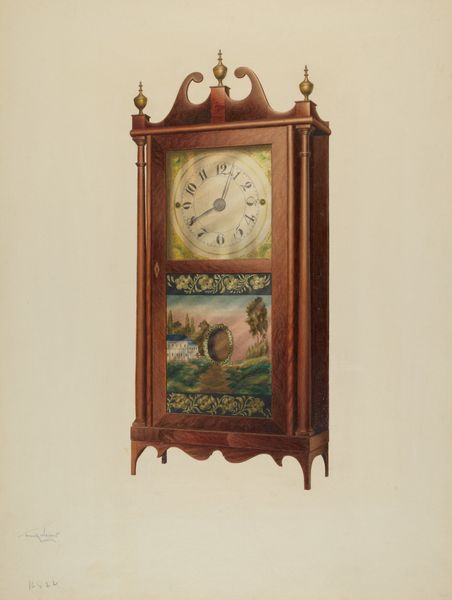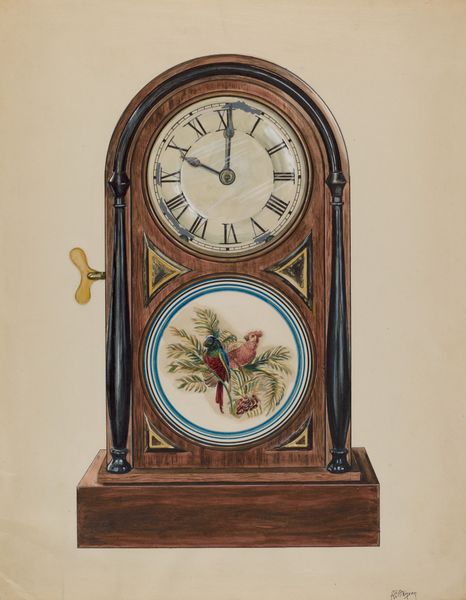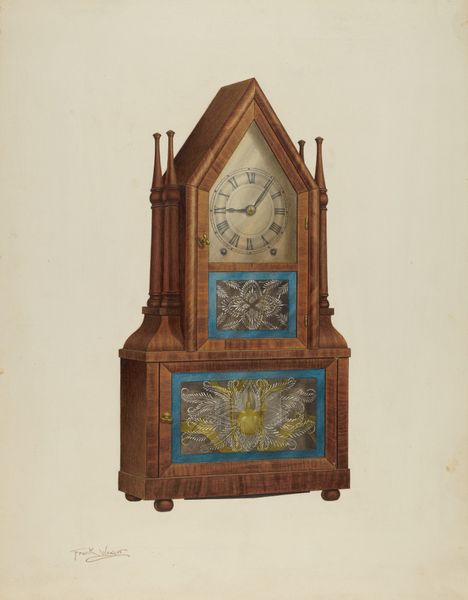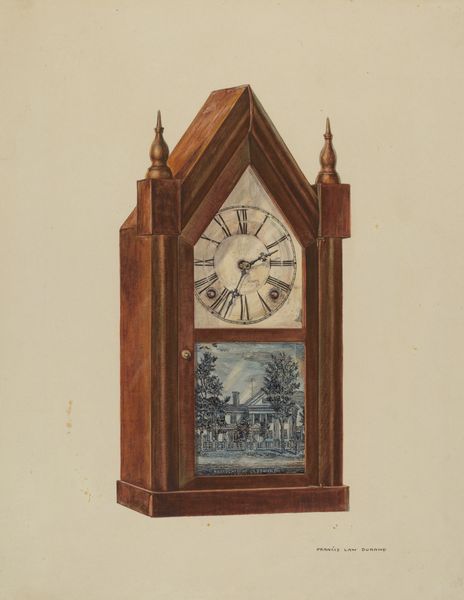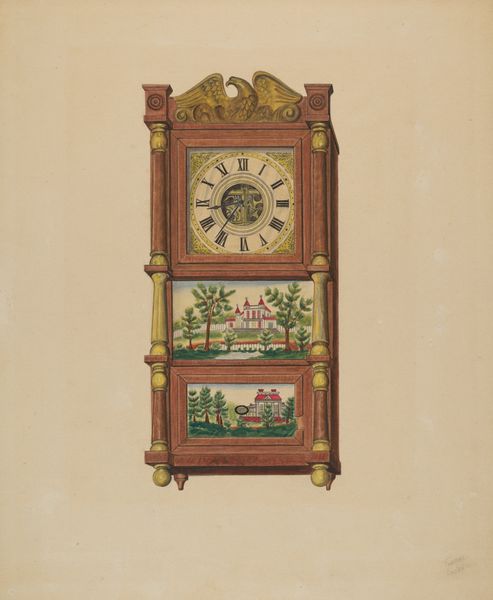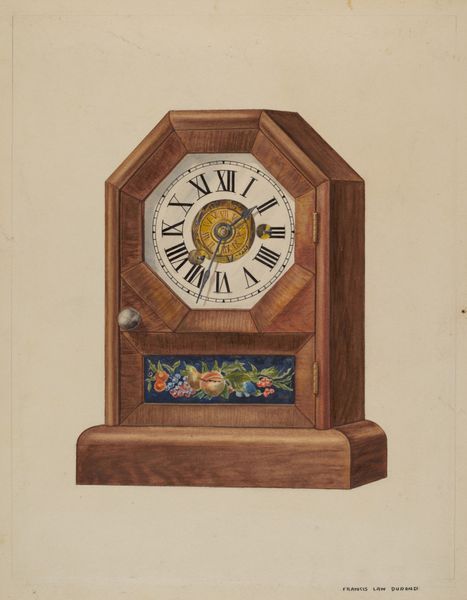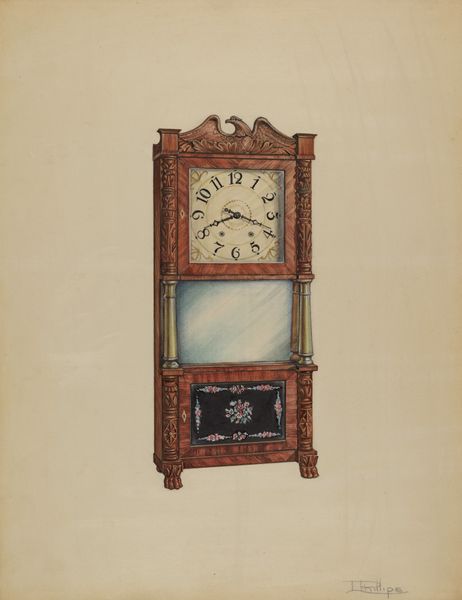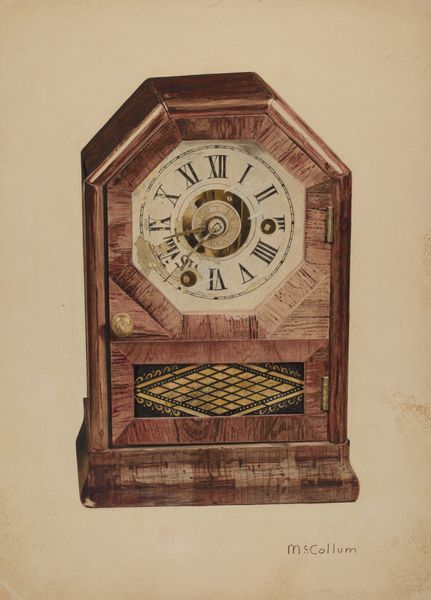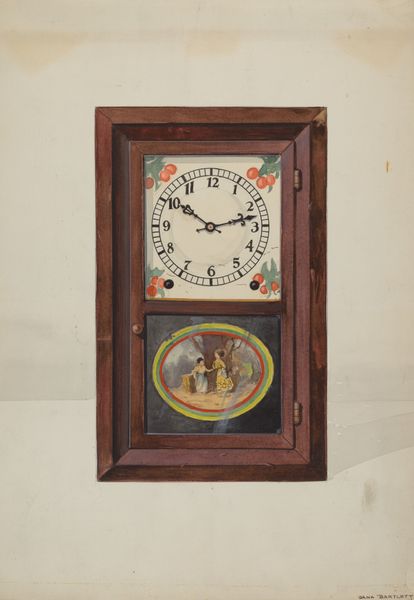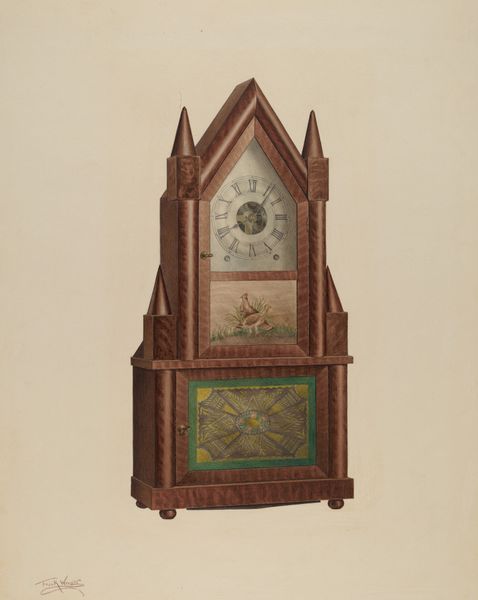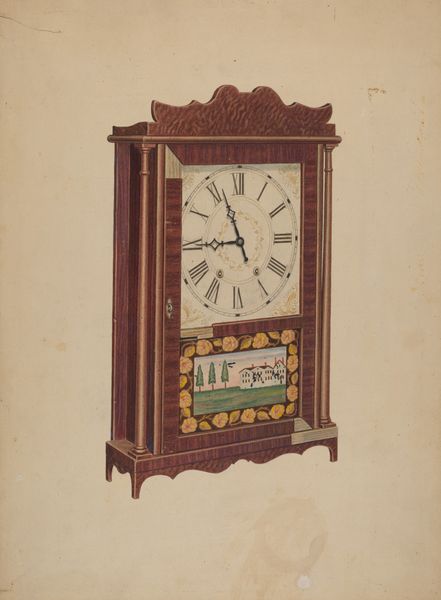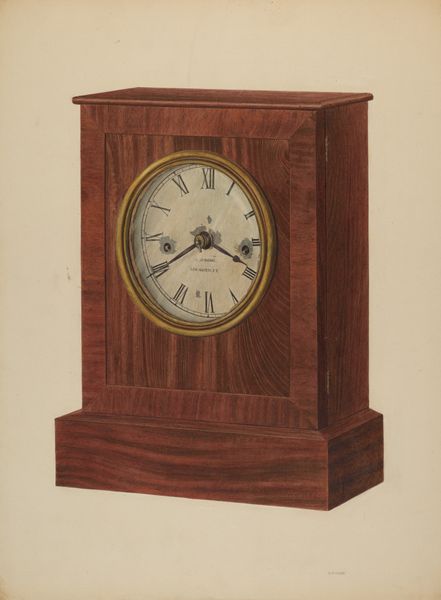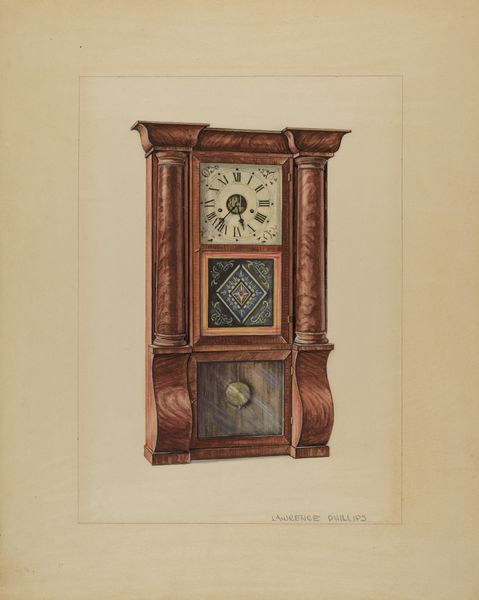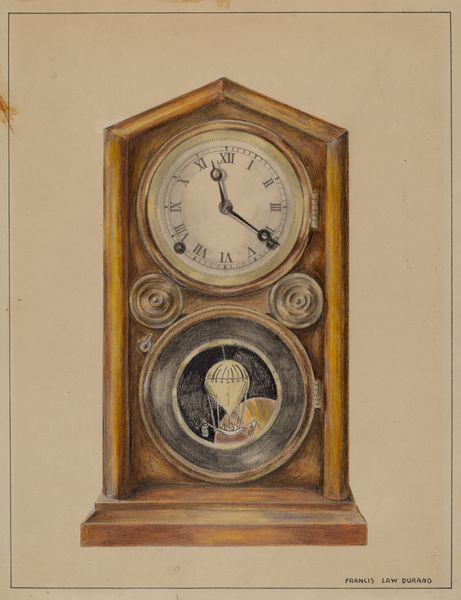
drawing, watercolor
#
drawing
#
water colours
#
antique
#
oil painting
#
watercolor
#
watercolour illustration
#
decorative-art
Dimensions: overall: 56.1 x 36.5 cm (22 1/16 x 14 3/8 in.) Original IAD Object: none given
Copyright: National Gallery of Art: CC0 1.0
Editor: We are looking at "Shelf Clock," a watercolor drawing from around 1939 by Lorenz Rothkranz. It's incredibly detailed. The architectural details on the clock itself feel grand and imposing despite being on a relatively small, domestic object. What do you see in this piece from your perspective? Curator: The representation of the "Shelf Clock," speaks volumes about the period's artistic sensibilities. During the late 1930s, a revival of interest in decorative arts coincided with the economic hardships of the Great Depression. Pieces like this suggest a longing for order and refinement during a time of great uncertainty. What do you think about how the piece blends utility with ornamentation? Editor: I hadn't really considered that. It’s interesting how the practical function of a clock is elevated through such ornate details, almost masking its purpose. Is it suggesting something about value or status? Curator: Exactly. Objects like this weren’t simply functional, but also served as visual markers of social aspirations. This was at a time when social class was a lot more emphasized in people’s households. The image even hints at the growing consumer culture by turning the mundane domestic object into something aspirational. What I'm not sure about, and perhaps further research could investigate, is the specific intended audience. Editor: So, the choice of rendering an everyday object into something precious reflects broader social and economic anxieties, turning time itself into a commodity of sorts? Curator: Precisely. Think about how such depictions shape public perception of value and progress. The imagery can reveal underlying tensions between practical needs and idealized representations. I hadn’t looked at it that way before, it seems you are spot on! Editor: It makes you rethink what’s "on the surface." Thanks!
Comments
No comments
Be the first to comment and join the conversation on the ultimate creative platform.
